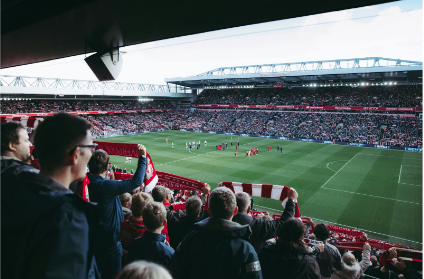Fantasy football has quickly become one of the fastest-growing pastimes across the UK. This rise goes hand-in-hand with the wider surge in esports and online gaming. In fact, according to this guide to the best site for esports betting, the esports betting sector alone is projected to hit nearly $225 million by 2029.
Similarly, the global value of fantasy football is set to exceed $30 billion by the end of the year, with its associated betting market expected to reach around $30 million. What drives this growth is the level of detail involved. Basically, from player stats to fixture planning, the game rewards smart analysis. It’s no surprise that many esports fans, known for their strategic mindset, have taken to fantasy football competitions with serious intent.
As managers look for an edge during the 2025/26 Fantasy Premier League season, one question keeps coming up: should captain picks be based on recent form or the difficulty of upcoming fixtures?

Players in Form: Why a Hot Streak Can’t Be Ignored
When it comes to picking a captain, most fantasy managers start with one thing: form. If a player’s been scoring goals or getting assists regularly, they’re hard to look past. This season, Erling Haaland is a perfect example. No matter the opponent, he’s delivering points.
And the numbers back it up. Players who score three or more goals in a four-game run are averaging around eight points per game. That’s a big return. These runs build momentum: players take more shots, get into better positions, and aren’t afraid to take risks.
But form also depends on the team around them. Just take a look at Viktor Gyökeres at Arsenal; his goals come from smart play, but also great passes from midfield. So when you go for form, check who’s supporting them too. It matters.
Easy Fixtures: Why the Matchup Still Counts
Form is big, but who a player is facing can change everything. Some fixtures are simply better than others. If a striker’s going up against a poor defence, it can be the perfect time to hand them the armband.
Take Bournemouth as an example. Their early fixtures were kind, and players like Semenyo used that to score well. Stats show attackers might do about 25% better against bottom-six defences than against stronger teams. That’s not small, and it’s a big reason why checking the fixture list should always be part of your captain pick.
Also, home games make a difference. Players often feel more comfortable on their own pitch. Liverpool’s attackers, for instance, have been much more dangerous at Anfield.
Defenders as Captains? Sometimes, Yes
It’s not common, but there are weeks when a defender can be the smartest captain. If no attacker has a good matchup, a clean sheet can bring in steady points. And if the defender also takes set pieces or chips in with assists, you’re looking at a solid return.
This doesn’t work every week (the risk is higher) but if your squad’s attackers are up against tough teams, backing a defender with a clean sheet chance might just do the job.
What the Early-Season Numbers Are Actually Telling Us
Erling Haaland, as expected, is delivering across the board. He’s scored against deep defences and weaker ones alike. His average is sitting around eight points per appearance, and that includes a match where City barely created anything, yet he still found a way to return.
Compare that to City’s midfield rotation, players like Bernardo Silva or Foden. Against tougher sides, their influence fades. They see less of the ball, have fewer chances to create, and don’t get into the box as often. The data supports this.
Attacking players with high expected goals (xG) and consistent involvement tend to keep scoring no matter who they face. That doesn’t apply to midfielders who rely heavily on space or freedom.
Defensive players flip the script. Clean sheets are still closely tied to the quality of the opposition. Managers who captained defenders facing bottom-half teams saw more consistent returns than those who simply rode form.
And don’t forget bonus points. They often go to players doing more than just scoring, those completing passes, recovering possession, or making smart contributions. That’s where form shows up again. Players performing well week after week tend to collect extras, and in tight games, that can make a huge difference.
Avoiding the Mistakes That Sink a Gameweek
Even the most experienced FPL managers fall into old traps. One of the most common is getting sucked in by a one-off performance. Just because someone scored big last week doesn’t mean they’ll do it again. If there’s no track record (no minutes, no xG, no signs of consistency) you’re basically flipping a coin.
Another mistake is giving too much weight to the fixture. Yes, it matters who they’re playing, but a bad defence isn’t a guarantee. Teams like Bournemouth have shown this season that they can frustrate favourites, especially with set-pieces or quick counters. Ignoring that leads to blank captaincies.
There’s also the emotional factor. If you’re still backing your club’s talisman despite bad numbers or a brutal run of fixtures, you’re likely playing with your heart, not your head. The best managers stay neutral when it comes to points.
Finally, don’t forget the vice-captain. Injuries, rotation, or random rest days happen, especially around midweek European games. Pick a backup captain who’s got decent form or a soft fixture. It’s a safety net that’s saved more than a few managers from a nightmare week.
What to Expect as the Season Unfolds
The longer the season goes, the more things start shifting. International breaks are the first curveball; players come back tired, some carrying knocks, and suddenly their form dips. After those breaks, fixture analysis becomes more important. If a top name isn’t at full fitness, even a great run might not mean much.
Then comes the Christmas chaos. Squad rotation ramps up, and suddenly the backups matter. Clubs like Arsenal and Chelsea with deeper squads become goldmines, as bench players step in and deliver. Keeping an eye on which rotation players are getting minutes can help you make smart, low-risk captain picks.
Champions League involvement is another factor. Managers start protecting key players, especially in the lead-up to the knockout stages. This is where mid-table clubs without European distractions shine. Their stars play every game, every minute, and they’re fresh.
One final tip: keep tabs on coaching changes. A new manager can breathe life into a squad, change the shape, or unlock someone who was barely relevant before. That kind of shift changes both form and fixture difficulty in one go.
Stay flexible, watch the trends, and keep thinking a week ahead. That’s what separates the good captaincy calls from the average ones.

